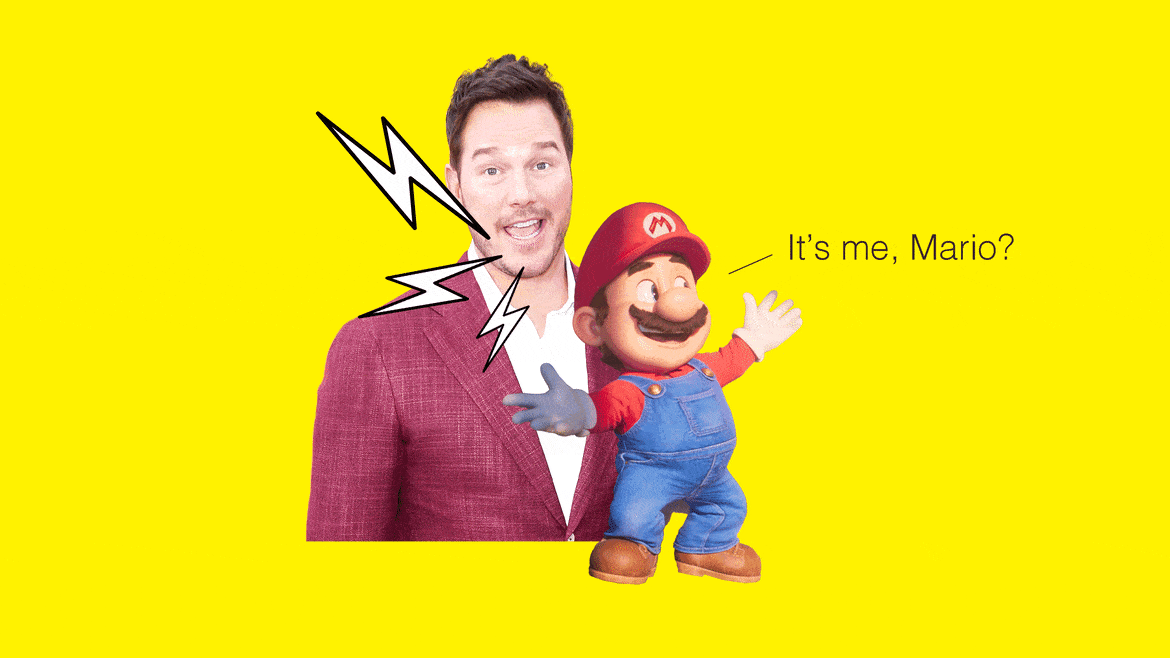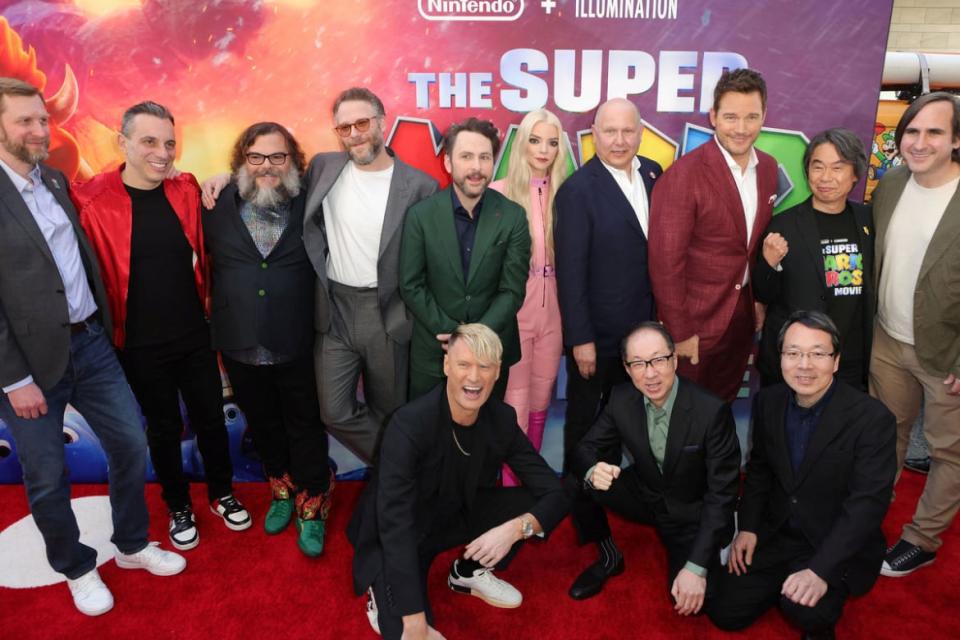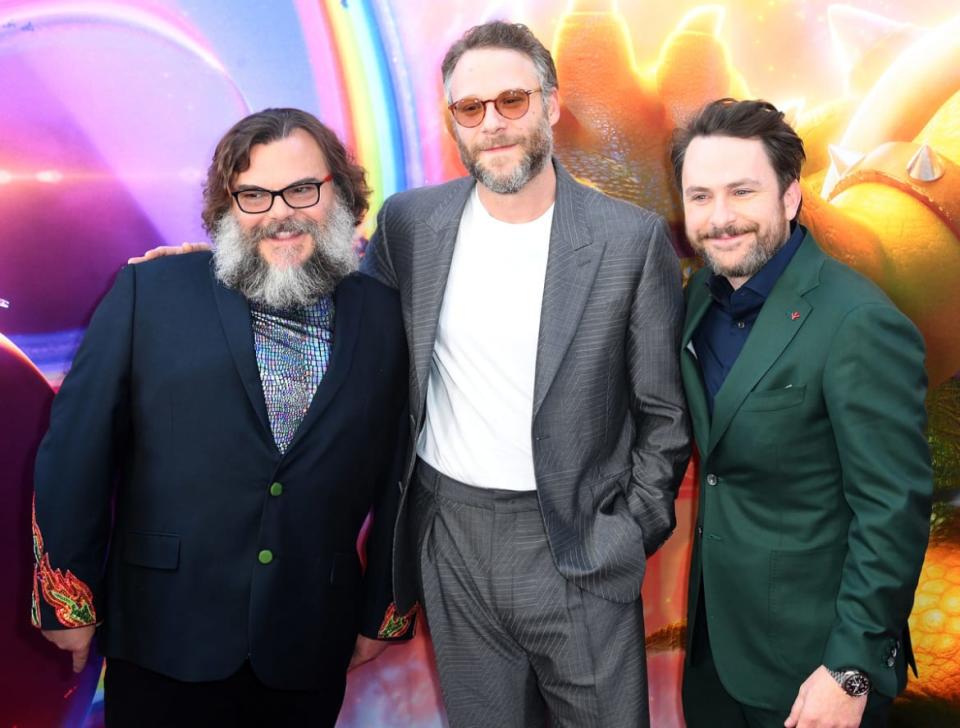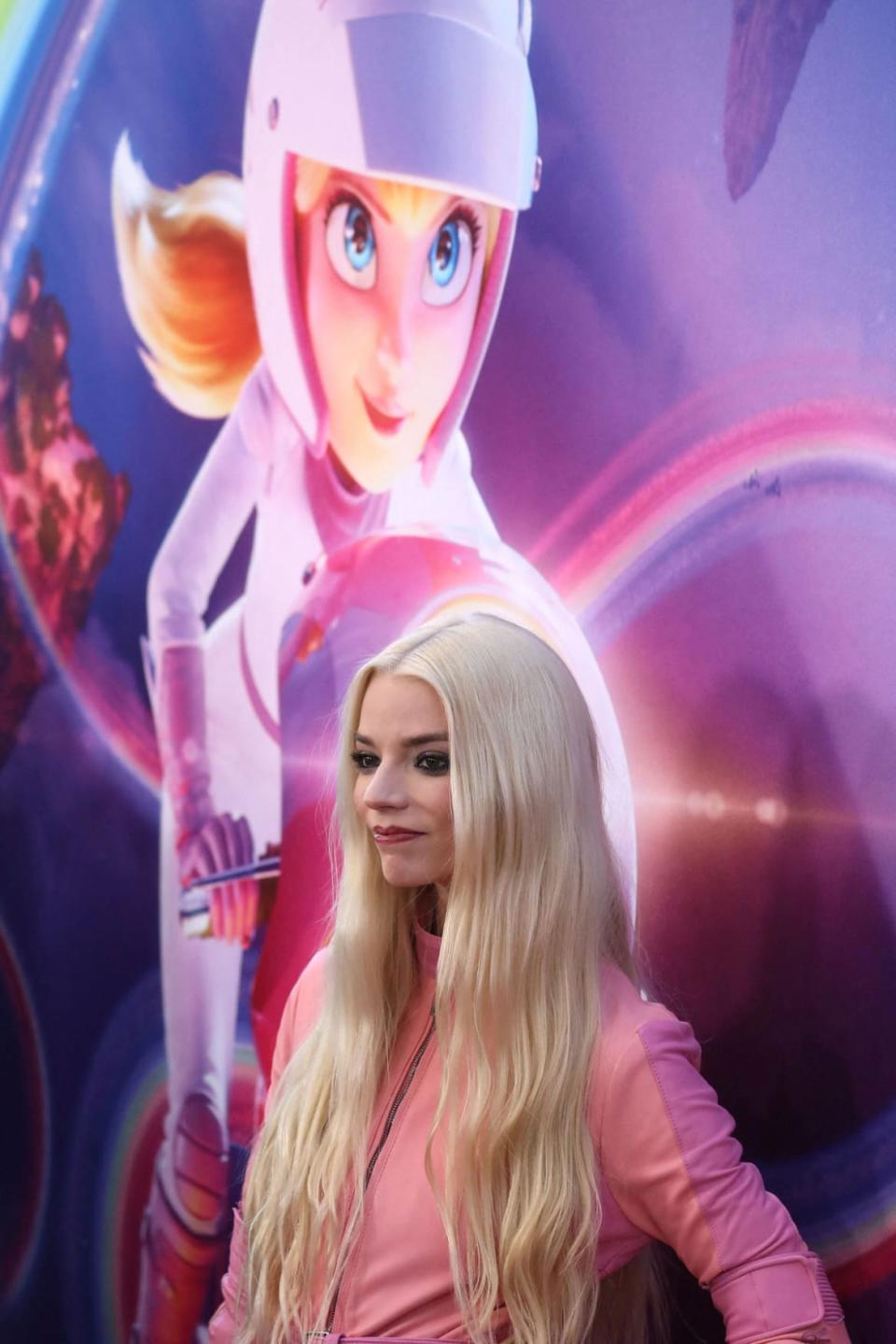‘The Mario Movie’ Needs to End the Hollywood Voice Acting Trend

The Super Mario Bros. Movie isn’t going to take over the world—it already has. After a record-breaking opening weekend, Mario is all but set to be among the highest-grossing films of 2023. We’ll be dealing with the MCU (Mario Cinematic Universe) for decades to come. The film’s got a lot going for it—it delivers what Illumination Entertainment (Minions) does better than most, creating harmless, gorgeous, candy-coated fun for the whole family. There are plenty of Easter eggs and references to keep video game devotees happy.
But there’s one aspect where the movie drops the ball, hard: the voice acting. What the makers of The Super Mario Bros. Movie and far too many other animated films seem to ignore is that voice acting is its own art. It’s so much more than just reading lines, which is what happens in this movie. In fact, Mario perfectly portrays what happens when studios hire actors based on star power alone, instead of seeking out the best people to bring dimension to the characters on-screen.
Of Course ‘Super Mario Bros.’ Will Be One of the Biggest Movies Ever
I know the internet went up in arms when Nintendo announced that Chris Pratt would play Mario. After seeing the movie, I knew that the internet was right to reject Pratt. The problem here isn’t that Pratt isn’t able to give a good voice-acting performance; he was great in Pixar’s Onward and led the popular Lego Movie series. The problem is that Pratt doesn’t seem to have been given much direction. His Mario sounds aimless, undetermined, and bored—not qualities we expect from our favorite plumber.
The same can be said of much of the rest of the cast. Other offenders include Anya Taylor-Joy’s Princess Peach and Charlie Day’s Luigi, as well as Fred Armisen’s Cranky Kong. And while I must respect whatever Keegan-Michael Key is doing as Toad—he admirably tries to do something, anything, to use his voice to beef up a thin character—the result sounds rather off-putting. It does not fit his tiny, happy-go-lucky character in any conceivable way, but I’ll be damned if it’s not at least a genuine attempt! (However, Jack Black’s Bowser is wonderful, and therefore innocent.)
Toad, Luigi, and Cranky Kong are secondary characters, so their rough edges are easier to forgive. Pratt and Taylor-Joy’s varying forms of lifelessness, however, are huge distractions; the film rests on their shoulders, and all the world’s best Easter eggs can’t make up for characters that sound like they’d rather be anywhere but the Mushroom Kingdom. Every time it seems that Pratt’s Mario is coming into his own, he drops a “Wahoo!” or “Let’s-a-go!” to remind us that each of his non-slogan lines are hollow. Taylor-Joy’s Peach, meanwhile, delivers a key line—“To the Mushroom Kingdom and the biggest fight of our lives!”—with the enthusiasm of an underpaid retail worker, who just realized they have to clean the bathroom.

Here’s the thing: The Super Mario Bros. Movie was always going to be a massive hit. Illumination is incredibly good at making money. The studio understands what its audience wants, and there are few bigger audiences than Mario fans. Why not use this opportunity to hire those who’ve developed their craft for decades—professional voice actors—for these roles? It feels especially strange in this instance, as Mario’s in-game voice actor Charles Martinet both makes a cameo and plays the brothers’ dad. He’s right there, showing his range, showing us what could have been.
This sorry ensemble of A-listers (and plenty of B-listers too) does a disservice to The Super Mario Bros. Movie, but executives will surely suggest otherwise. The movie’s been a huge success so far, and its cast has done a lot of fun press appearances. Jack Black even has a breakout hit, thanks to Bowser’s “Peaches” ballad. But I’d argue that the movie’s opening weekend success happened despite this poor voice acting, not because of it. Instead, because of its vocal cast, it stands as one of the most successful examples of the long-running trend of lazy voice casting.
The idea of hiring A-listers to star in animated movies is older than you may realize. Back in the ’60s, UPA, an animation studio founded because of the 1941 Disney animators’ strike, produced its second full-length feature: Gay Purr-ee. This silly (and surprisingly good) movie follows a cat named Mewsette, who dreams of a luxurious life in Paris. Mewsette was voiced by none other than screen legend Judy Garland, who was one of the most famous actors in the world at the time.
The hope, of course, was that Garland would be a big enough box-office draw that UPA could make a name for itself in cinema. Considering this is probably the first you’re hearing about Gay Purr-ee, you can likely surmise that this gamble didn’t pay off. Disney continued to dominate the film scene, and UPA focused on television. The studio learned that a big name couldn’t make up for a bad film, and the mistake would not be repeated for decades.
But in the ’90s, things took off again, with Disney casting familiar faces as its animated characters’ voices. These weren’t all bad: Robin Williams’ performance as the Genie in 1992’s Aladdin is considered one of the greatest performances for good reason. It’s spirited, joyful, and full of quirks and nuances that make you believe nobody else on Earth could have played the Genie.
While Garland is an early example of A-list stars dabbling in voice-acting, Williams really started the trend in the ‘90s. One of the key components of the Disney Renaissance was hiring big-time comedians to voice sidekick characters; after Williams came Nathan Lane in The Lion King; Jason Alexander in The Hunchback of Notre Dame; Danny DeVito in Hercules; Eddie Murphy in Mulan; and Rosie O’Donnell in Tarzan.
But it was DreamWorks that changed the landscape of voice acting forever with Shrek in 2001. The film made unfathomable sums of money, won an Oscar, and developed a lasting legacy and fanbase. One big reason for that success? Casting Mike Myers, who gave Shrek the Scottish brogue that went on to define the character. (Myers also replaced Chris Farley, who died before production was complete.)

Since then, studios have chased that same success by casting the biggest stars of the day to give their films a boost—DreamWorks included. But what studios seem to conveniently forget about Myers’ work in Shrek is that it’s a capital-P performance. Myers does what all great voice actors do by transforming and contorting his voice, disappearing completely into the world’s most beloved ogre. Executives seemed to take entirely the wrong note from this achievement, thinking that those big profits stemmed from Myers’ fans showing up to see Myers. But that undermines the real reason Shrek works so well: If you could go back and watch the movie without knowing who played Shrek, I’m willing to bet you’d never guess it was Myers.
Despite this, studios have been chasing an elusive golden goose ever since. All the while, they’ve forgotten what made that waterfowl so coveted in the first place. Their assumptions have led to a sturdy pile of uninspired or downright terrible voice acting. Movies like The Secret Life of Pets, Peter Rabbit, and DC League of Super-Pets seem to exist solely as a showcase for their poorly cast Hollywood stars, and their artistic failures are evident.
How Keegan-Michael Key Conquered the Challenge of Playing Mario’s Most Shrill Hero
Musicians who have no business acting also often make their way into animated movies. The Lorax inexplicably starred a dreadful Taylor Swift, and The Smurfs gave us Katy Perry, both musicians brought in in the hopes to rake in the dough. Throw in a big movie star like Julia Roberts, and you … still have a totally forgettable film.
Even Disney messes up these days. Lightyear traded in the wonderful Tim Allen for Chris Evans, a move that whisked all the life out of a beloved character with one fell swoop. No wonder Lightyear failed to hit the highs of Toy Story on any level.
While the assumption may be that casting celebrities results in cash, casting stars for their names and not talent has often resulted in box-office disasters. Who could forget 2008’s Delgo, with Freddie Prinze Jr., Jennifer Love Hewitt, Anne Bancroft, Val Kilmer, and Burt Reynolds? (Just kidding; everyone forgot.) What about 2012’s Rise of the Guardians, which brought together Chris Pine, Jude Law, and Hugh Jackman? How about the absolutely grotesque 2013 flick Legends of Oz: Dorothy’s Return, with Lea Michele, Dan Aykroyd, Hugh Dancy, Patrick Stewart, and Jim Belushi?

That’s to say nothing of 2000’s disastrous Titan A.E. with Matt Damon, 2019’s Missing Link (another Hugh Jackman film), 2007’s Beowulf (Angelina Jolie), and countless others box office bombs. While the quality of these films varies greatly, their meager receipts make it clear that star power isn’t enough.
Look, not every voice actor is going to automatically be better than a big-time movie star. But a big reason animation is so beloved by people of all ages (it is, in fact, not just for children) is that it’s immersive. The ability to create unique worlds and incredible characters is something animation can do better than any other medium—if you can draw it (or computer generate it), it can happen.
What exactly is immersive about playing games of “Which celebrity voice is that?” When studios cast actors and have them offer little insight into the character beyond their already recognizable voice, it runs counter to the very thing these animated movies are trying to do. The fault doesn’t lie with the actors—rather the blame can be placed on executives that don’t seem to understand the appeal of their own movies.
Voice actors, meanwhile, create that very sense of immersion. They vanish completely into these characters, giving them not just a voice, but an entire purpose and reasoning behind those voices that are essential to the world building of these movies. Hiring people based on their Hollywood stature and getting them to just speak as themselves with the occasional intonation is not only a disservice to the craft, but a real blow to audiences.
Pore over the work of great voice actors like June Foray, Mel Blanc, Tara Strong, Tom Kenny, Dan Castellaneta, Frank Welker, and Grey DeLisle, and you’ll hear a rich variety of characters—ones you won’t believe all came from the same people. That’s part of the magic of vocal performance. Even when an actor’s voice does become recognizable across all their roles—like that of H. John Benjamin, who plays Bob in Bob’s Burgers and Archer in Archer—the distinctions they make in each performance are clear. Benjamin injects the perfect amount of exhaustion into Bob, while giving Archer a suave know-it-all air. Yes, you can tell both are Benjamin, but you’d never confuse Archer with Bob.
It's also easy to get attached to a great vocal performance, because it brings so much to the character. It’s why when John DiMaggio threatened to pass on returning as Bender in the Futurama reboot, people were more upset than they were about Chris Pratt playing Mario. Who is Bart Simpson without Nancy Cartwright? Dr. Zoidberg without Billy West? Eric Cartman without Trey Parker? I don’t know, and frankly, I hope I never find out.
If your film has a great concept, people will come. If it looks fantastic, people will come. Kids are not shouting at their parents to take them to the latest family-friendly movie because a certain voice actor is in it. Find me a kid who begged their parents to see Igor because John Cusack was in it, and I'll find you a prime candidate for the Didn't Happen of the Year Awards. The same goes for The Super Mario Bros. Movie and Chris Pratt. For the love of animation, let the best possible person voice your characters. Do it for the art form. Let your stories sing.
Get the Daily Beast's biggest scoops and scandals delivered right to your inbox. Sign up now.
Stay informed and gain unlimited access to the Daily Beast's unmatched reporting. Subscribe now.

